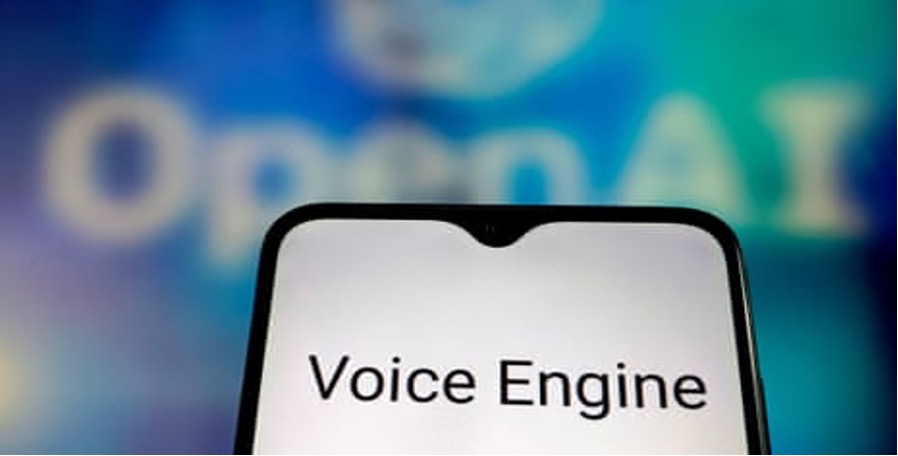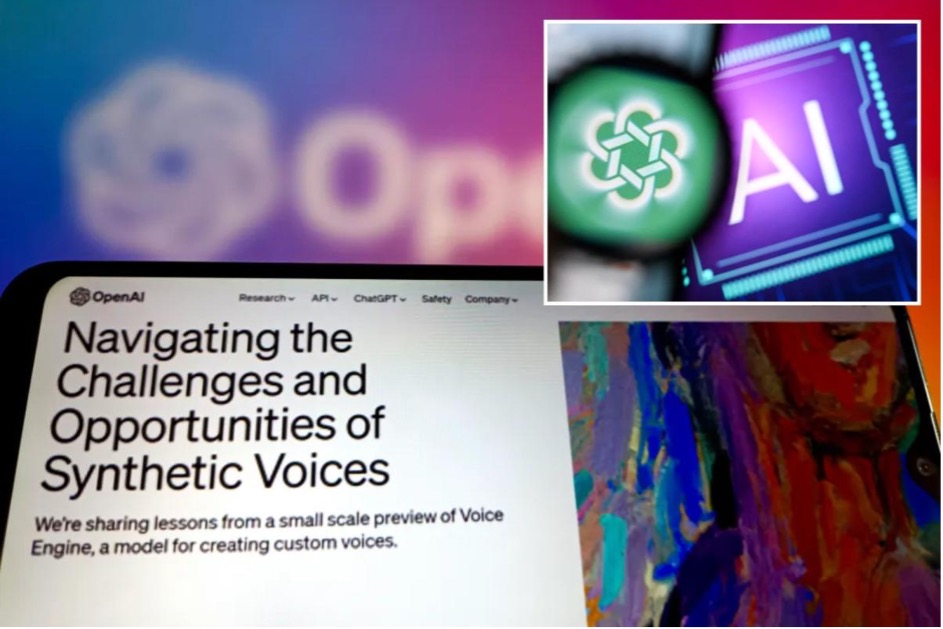Voice cloning is the procedure that uses certain artificial intelligence software to produce an artificial copy of an individual’s voice with the help of a computerized model that examines the individual’s speech patterns, nuances, and intonations, and then replicates it with perfection. The voice cloning method uses mature machine learning algorithms like neural networks, to gather information, record audio clips, extract features that are exclusive to each individual voice, and synthesize new speech that sounds like the original.

The goal of OpenAI, a private research institute, is to create and apply artificial intelligence in different ways that are advantageous to all people. The company has enhanced the unsettling human-like qualities of its artificial intelligence (AI) with the use of a text-to-voice tool that mimics the natural speech of a 15-second voice recording. Though Voice Engine is presently exclusively accessible to early testers, even OpenAI has expressed concern about possible misuse of the said technology and has stated that it would not make Voice Engine publicly available.
Application Scenarios of Voice AI
OpenAI has been testing applications for this technology in collaboration with a number of partners. These are a few that the company has currently found:
- Translating Any Content: This allows more people worldwide to hear from creators and companies who use media like podcasts and videos in their voices. Voice Engine maintains the original speaker’s native accent. For instance, if English is generated using an auditory sample from a French speaker, the result would be French-accented speech.
- Reading Assist: This will be made available to youngsters and non-readers to produce expressive and realistic voices that represent a greater variety of speakers than can be achieved during learning or in an educational setting.
- For Non-Verbal Individuals: Voice Engine can be used to improve learning for students with special needs as well as provide therapeutic applications for people with speech-related disorders.
What could be the Associated Hidden Dangers?

Adding to this, let us also learn about the risks associated.
OpenAI stated that it was being careful and planning well-informed method to a wider release due to the possibility for synthetic misuse of voice. Deepfakes are a common way for artificial intelligence (AI) to propagate misinformation during election years. This issue is exacerbated by the widespread use of Generative AI technologies.
The company also stated that they understand that producing speech similar to people’s voices has severe risks, which are especially top of mind in an election year. They are joining hands with the US and the international partners from across media, government, education, entertainment, civil society and beyond to assure they are integrating their feedback as they are building,” it added.
What’s New with Voice Cloning?

Following a number of breakthroughs, OpenAI has created a voice cloning technology named “Voice Engine” that can produce realistic-sounding speech with just text input and a single, 15-second audio sample. Though much awaited, the firm will not reveal the new function since it fears nefarious usage and an increase in instances of fraudulent content and duplication on the internet.
OpenAI stated in a blog post that although speech Engine is still in the testing phase, its testing partners have agreed to guidelines that include requiring the express and informed agreement of every individual whose speech is replicated using the tool. The corporation stated that listeners must be made aware of AI-generated voices.
The prominent artificial intelligence firm OpenAI has now entered the voice assistant market with Voice Engine, its most recent invention. With simply 15 secs of recorded speech from subject, this modern technology can accurately mimic a person’s voice.
The company’s announcement of Voice Engine, which hints at its intention to advance voice-related technology, follows the filing of a trademark app for the moniker. OpenAI has opted to restrict Voice Engine’s availability to a small number of early testers for the present time, citing worries over potential abuse and the accompanying threats, despite the technology’s possibly revolutionary potential.
OpenAI highlights the importance of hiring ethical technology, identifying the severe risks associated with the capacity to imitate people’s voices, especially in delicate situations like elections. The essential need for awareness is highlighted by recent events like robocalls that impersonate political characters with AI-generated voices.
Even though there are currently a number of startup companies offering voice-cloning services, OpenAI stands unique from others by giving ethical matters first priority. Strict regulations like asking agreement before imitating someone and exposing the usage of AI-generated voices, were settled upon by early testers of Voice Engine.
OpenAI’s choice to postpone Voice Engine’s release (public) can come out as conventional, but it actually represents a sensible strategy destined to decrease potential dangers. This is consistent with the company’s previous methods, including with its video maker Sora, which was likewise publicized but not made available to the general public. Also, it appears from recent trademark filings that OpenAI is all ready to surge its market share in the digital voice assistant and speech recognition space, possibly challenging well-established companies like Alexa by Amazon.
As OpenAI continues to advance in the domain of artificial intelligence, the creation and application of technologies like Voice Engine, which present both previously unfamiliar potential and difficulties, are expected to influence the direction of human-computer interaction.

